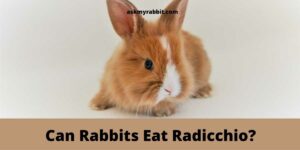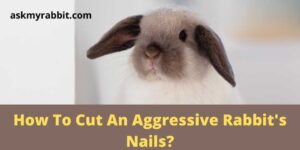It is common knowledge that rabbits are strict herbivores. Rabbits love veggies and fruits and their hay. Any rabbit mom knows that their bunny’s diet is very important and no rabbit mom wants to feed their babies toxic food.
Parsnips are a very common ingredient in everybody’s household. It is a great addition to many dishes. That’s why many will like it is okay to feed your rabbit anything out of your pantry. But is parsnip safe for your buns?
Can rabbits eat parsnip? Yes, But in moderation. It is important to pay attention that your rabbit does not overfeed on parsnip. Parsnip is a root vegetable and like all root vegetables, parsnips should also be fed moderately.
In this article, we will discuss more about why rabbits should or should not eat parsnips, the benefits of parsnips, how to feed parsnips, and more.
Let’s hop straight in!
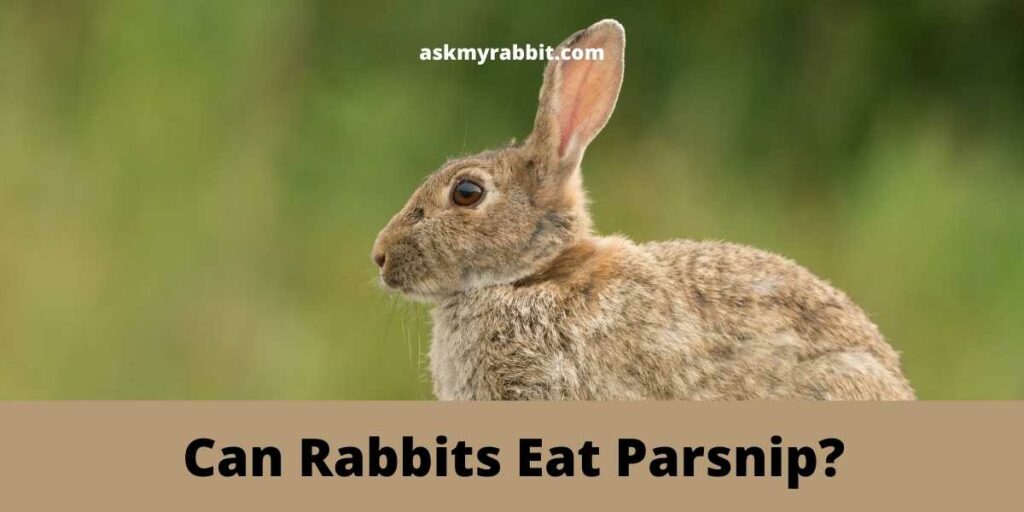
Should Rabbits Eat Parsnip?
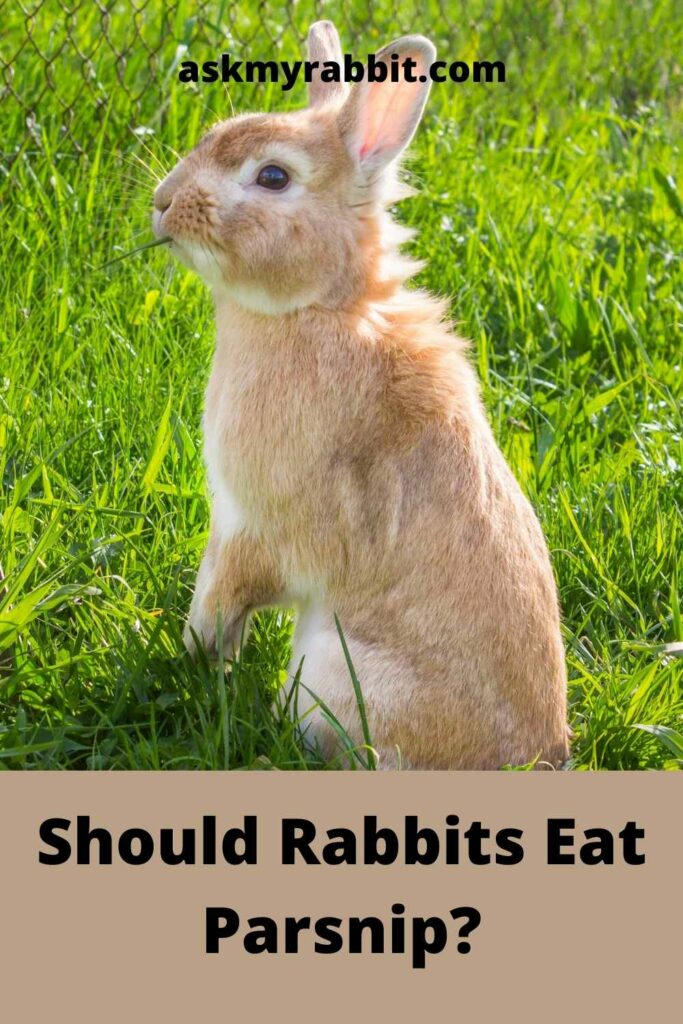
The parsnip is a root vegetable closely related to carrot, belonging to the Apiaceae family. Its long taproot has cream-colored skin and flesh, and, left in the ground to mature, it becomes sweeter in flavor after winter frosts.
You can give parsnips to your rabbit. Parsnips are not toxic to rabbits however you should only give parsnips as a treat and they shouldn’t be a part of your rabbit’s everyday diet.
Parsnips contain substantial amounts of sugar and phosphorus. It’s OK to give parsnips to rabbits as long as it’s a treat!
Another plus is that rabbits love parsnips. Rabbits love sweet taste and parsnips are sweet. This means rabbits will happily eat parsnips without any problem.
This exactly poses a challenge. Because your bunnies will go back again and again to eat the parsnips which will increase the risk of being overfed.
Parsnips have a strong aroma. This is also appealing to the bunnies. They have a naturally occurring essential oil, which creates a strong aroma. Even though it has a spicy scent, rabbits won’t be able to taste it but they’ll enjoy the scent.
Parsnips are good for rabbits if given in moderation. Parsnips are low in calories, it’s a diuretic, it has high quantities of magnesium and potassium and the list goes on and on. Parsnips also contain many minerals and vitamins that are good for your bunnies.
In the following, we will cover more about parsnips and why they are good and sometimes bad for your bunny babies. Let’s jump in!
Are Parsnips Good For Rabbits?
Yes, parsnips are really good for rabbits if given in moderation. Let’s see a few reasons why parsnips are good for your bunnies:
- Low-calorie content: 100g of parsnips contains 55 calories. This means that one tablespoon contains eight calories.
- Parsnips Contain High Quantities of Magnesium and Potassium.: Both of these enzymes are critical to keeping a rabbit healthy.
- Parsnip is a diuretic: it will help reduce the symptoms of liver, kidneys, heart, or lung problems. Besides, it can be helpful to treat bladder stones and UTIs.
- It will make your rabbit full. Parsnips are rich in carbs, and that will make your rabbit feel full. Also, they will keep your pet energetic.
- Tough: Good for their teeth and keeps them busy while they work their way through it. Rabbits usually enjoy a crunchy snack.
- High water content: Great for keeping your rabbit hydrated.
Nutritional Information About Parsnips
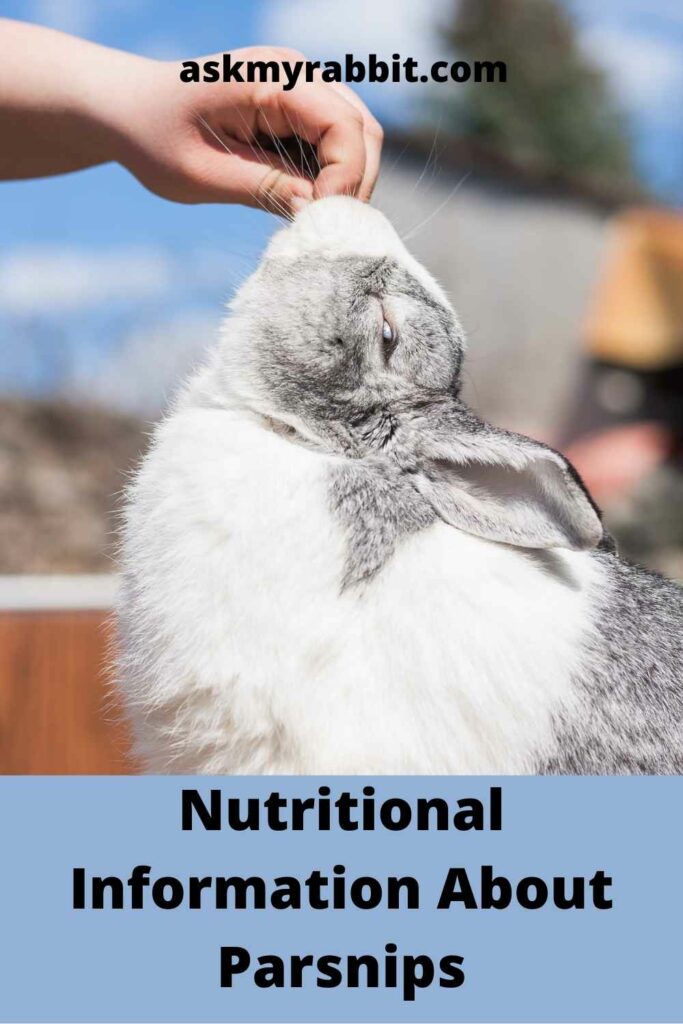
We know that parsnips are good for bunnies. Let’s now discuss the nutritional information of parsnips.
One cup (133 grams) of parsnips provides the following:
- Calories: 100
- Carbs: 24 grams
- Fiber: 6.5 grams
- Protein: 1.5 grams
- Fat: 0.5 grams
- Vitamin C: 25% of the Reference Daily Intake (RDI)
- Vitamin K: 25% of the RDI
- Folate: 22% of the RDI
- Vitamin E: 13% of the RDI
- Magnesium: 10% of the RDI
- Thiamine: 10% of the RDI
- Phosphorus: 8% of the RDI
- Zinc: 7% of the RDI
- Vitamin B6: 7% of the RDI
Apart from these, parsnips also contain vitamin B. The B vitamins help your pet rabbit turn its food into energy. They impact wellness in general, promoting good health of the nervous system, brain, and heart.
Parsnips also contain potassium, manganese, antioxidants, high water content, and more minerals which are great for the growth of your bunnies.
Disadvantages Of Feeding Parsnips To Your Rabbits
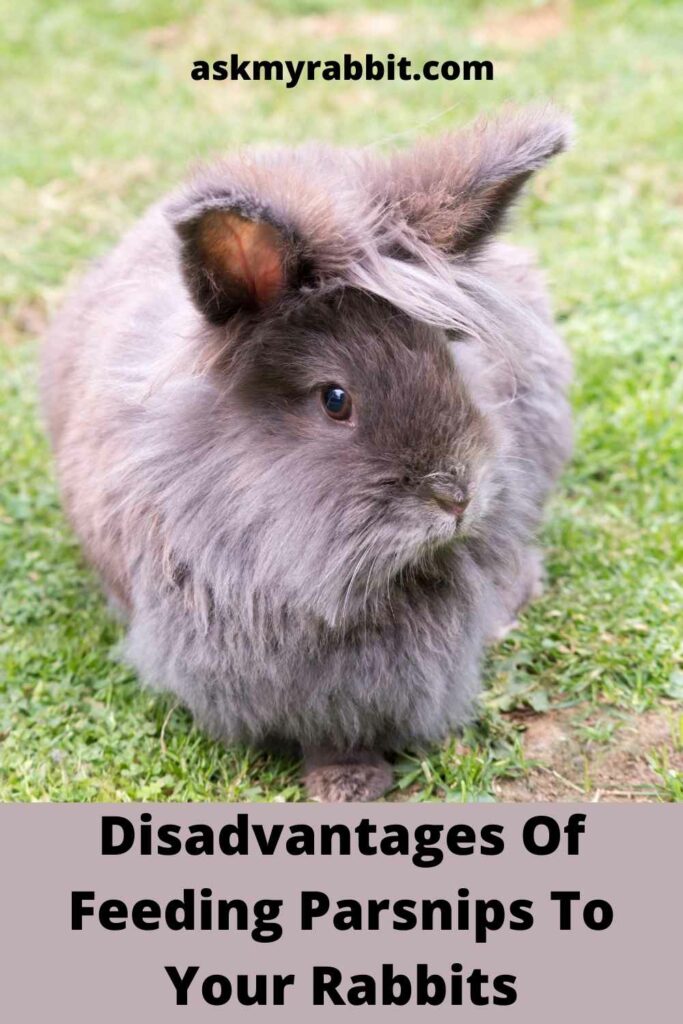
As we mentioned before, there are some downs to feeding parsnips to your rabbit. Let’s look into them:
- Sugar content: parsnips are high in sugar. This is one of the reasons it’s appealing to the rabbit but too much of this sugar can cause diabetes and can cause digestion problems.
- Vitamin C: since parsnips are a great source of vitamin C, there are a chance rabbits could extract more vitamin C. They cannot eliminate the excess vitamin C through urination. This can eventually lead to vitamin C toxicity.
- Phosphorous. Parsnip has huge quantities of phosphorus, which might endanger your bunny’s bone health. It can also affect kidney health.
- Allergy: humans can have an allergy to parsnips which can cause skin conditions. Rabbits can also have identical allergies to parsnips.
These are some of the cons of feeding parsnips to your rabbit. So you have to keep in mind that you always stick to the recommended amount of parsnips depending on your rabbit’s weight and age.
How To Feed Parsnips To Your Rabbits?
Parsnips should not be a staple or a part of your bunny’s everyday diet. It should only be given once or twice a week as a treat.
Your rabbit needs half a tablespoon of veggies per day per pound of body weight, but parsnip should only be part of that portion, along with two or three other veggies.
Before feeding the parsnips to your rabbit, you have to make sure you wash them completely and peel them. After peeling, you have to chop it into small bite sizes which will make it easier for your bunnies to eat them.
You have to keep in mind that you don’t feed expired or rotting parsnips to your bunny.
How Many Parsnips Can A Rabbit Eat?
A rabbit can eat parsnips in moderation. It will only be healthy if given in moderation otherwise it will be a health risk for your bunnies.
They should not be a part of the everyday diet. You can use them alternatively with other vegetable plants. It is worth mentioning that your pet should have a half tablespoon of vegetables every day per pound of its body weight.
In addition to parsnips, you have to give them leafy vegetables and mix them with other veggies and fruits.
Can Rabbits Eat Parsnip Peeling?
Yes, rabbits can eat parsnip peels. It’s not toxic to the rabbits. But there are a few things you have to know before feeding them rabbit peelings.
Peelings are particularly high in phosphorus and sugar, besides being acidic. The thin, soft peels will also pose a problem to your bunnies’ strong, large jaws. Thus, it can be a little tricky for your rabbits to chew peelings.
It won’t be toxic for the rabbits if given in small quantities. However, it is not recommended to give it to your rabbits.
Can Rabbits Eat Parsnip Leaves Or Tops?
Well, this is an ongoing debate between rabbit moms. Even though rabbits love leaves and veggie tops, parsnips leaves or tops aren’t always recommended. There’s a chance that rabbits could be allergic to the parsnips tops or leaves. So to be on the safe side, it’s better to avoid feeding them parsnips tops or leaves.
Can Rabbits Eat Raw Parsnips?
Yes, rabbits can eat raw parsnips. Raw parsnips are recommended for rabbits. If parsnips are cooked they will lose their vitamins and minerals and only sugar will be left. That is not healthy for your rabbit.
Besides, raw parsnips are crunchy which will aid in the teeth development of rabbits. This is why raw parsnips are recommended more than cooked ones.
Alternatives To Feeding Parsnips To Rabbit.
Now you know that parsnips are safe for your rabbits. But it still comes with a few asterisks. Let’s see for a few safer options for your bunnies.
Here are a few safe vegetables that you can consider for your rabbits.
- Romaine Lettuce
- Broccoli
- Celery
- Cauliflower Heads
- Cauliflower Leaves
- Brussel Sprouts
Frequently Asked Questions
Can My Rabbit Have Honey Parsnips?
No, your rabbit can’t have honey parsnips. While your rabbit may love a honey-coated parsnip, it massively increases the sugar content for your rabbit which can cause issues like dental problems and obesity.
Can bananas kill rabbits?
Both banana peels and leaves are non-toxic but it is recommended by some vets not to be given to the bunnies as they are sprayed with pesticides and other harmful chemicals. These chemicals can kill your rabbit or make them seriously ill.
Final Word
Finally, we have the answer to the question, Can rabbits have parsnips? Yes, the rabbits can have parsnips and it’s perfectly safe. Parsnips are highly nutritious if given moderately.
Overfeeding on parsnips can cause a few hiccups by sticking to the recommended amount of parsnips. If you see any toxicity and overfeeding symptoms, it is recommended to see a vet immediately.
We hope this article solved all your doubts about parsnips and rabbits. Comment down below for more questions.



